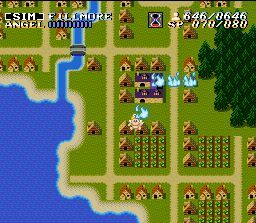Tribalism and Team Games
Tribalism is an underlying concept that’s arguably intrinsic to the human condition. It’s evident in every culture, every society, every continent. The concept of delineating an “us” versus a “them” exists in every group of people across the globe. At first glance, this may seem to be a detriment to our culture when it is, in fact, a natural result of self preservation. It’s also such a deeply ingrained belief that it’s unlikely to go anywhere. As such, it’s one of those human motivators that is probably best when bridled and used instead of squashed or oppressed.
Early examples of humanity had limited resources. This much can’t really be argued against. We have evidence of a culture of hunters and gatherers, as well as the formation of early tribes and settlements. Because of these limited resources, as well as the complete lack of infrastructure, it’s likely that the size of a group was extremely limited. Interpersonal dynamics aside, these groups are probably directly linked with the availability and longevity of the resources that were at hand. In an era before even subsistence farming, it simply doesn’t make sense to share with every single person you meet, or you’d soon run out of food, water, loincloths and beard dirt (I admit, my anthropology studies are definitely lacking). Obviously, those who proliferated (with, presumably, properly clothed loins and dirtied beards) would be those who kept enough to survive.
Having said that, it’s also clear that we are social creatures who are far more productive and effective when working in groups than by ourselves. Therefore, it seems likely that the fine balance between sharing with everyone you met and working in complete isolation has existed for tens of thousands of years. Though, until quite recently, social groups were highly limited in their ability to support a population. There’s a clear advantage to working together, but there’s a limit to that positive gain where the liabilities start to outweigh the benefits. This is what led to villages, tribes and, as technology advanced, the formation of cities and states. It’s highly unlikely that someone sat down and said “Today, we shall come together and create a village. In about a thousand years, maybe we’ll start swapping stuff with the neighboring villages. After that, how about we create identities based entirely on geography and skin pigmentation and then fight each other?” No, these things started organically and came about by virtue of trial and error. Within the macrocosm of geopolitics and human socio-economic development, these bounding conditions are evident. So, too, are they seem in the microcosm of video games. Though, these are often less natural and organic and more carefully planned and created.
Team dynamics in games like Left 4 Dead, Team Fortress and any MOBA you can think of are all built upon the premise of “Be a good team player or you’re gonna die(or be ridiculed by your teammates)”. This rather closely mirrors the negative reinforcement available in many real world experiences. Hunt well or die (or be ridiculed by your teammates). Conform or die (or be ridiculed by your teammates). Adhere to these laws or die (or be ridiculed by your teammates and locked in prison). These base motivations of avoiding the suffering are a very effective way to get people to participate, though they often breed resentment and a feeling of hollowness. A newer, more interesting form of motivation for teamwork has started to manifest in positive reinforcement. Games like Evolve and Overwatch (just to name a few) have started to reward good team behavior with awesome combinations and team-based techniques. Overwatch being a prime example of a game that does not really reward running off, guns ablazin’ nearly as much as “staying on the point and shooting anyone who comes close”. The game doesn’t chide you for wandering off in the style of L4D (which is known to spawn more zombies just to murder you for abandoning your team). Instead, the game rewards those people who stuck together, who stayed at the objective, who healed people nearby, who prevented an opponent from unleashing his or her coup de grâce. In that sense, we have a game that can direct our need for tribal engagement and approval and instead of dredging it through the muck of Call of Duty, instead raise us up to a higher level of rewarding us for participating well and just letting those who would defy the group wither away in the corner. Unless, of course, you get some of the asshats who insist on taking the game seriously. I mean, come on, you have the opportunity to pit 12 genetically altered, super smart Gorillas wearing power armor against each other. Why would you resist that? Pick Winston or Die! (or, at least, get ridiculed by your teammates).
-Kendric



